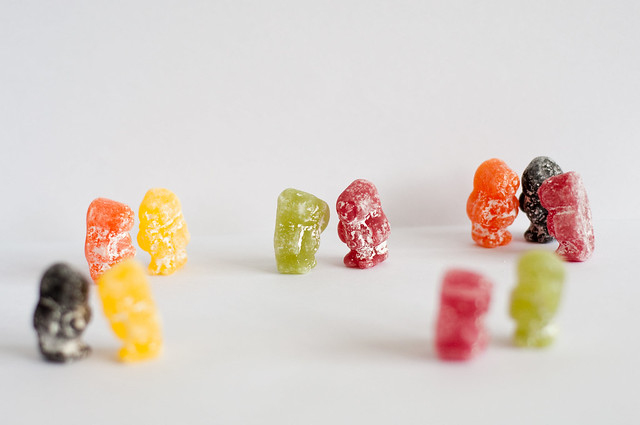By Guest Writer Christina Arnold

On the internet, it’s easy to create an online persona that radically differs from your offline self. When it comes to online dating, it seems even more likely that people will be deceptive about their true selves in an effort to get a date. But are there certain attributes that make it likely that someone will exaggerate about themselves? And how much will someone lie to score a date?
In the article “Strategic misrepresentation in online dating: The effects of gender, self-monitoring, and personality traits”, researchers examined what factors make it more likely that a person will misrepresent themselves to a potential online date.
The user of an online dating service is able to customize their profile to exactly how they want it, which may make it more likely that they will misrepresent themselves to appear better to a potential suitor—especially because of the high amount of competition that can be found on these sites. However, since online dating sites usually encourage face-to-face meetings early on, most users are discouraged from any blatant deception about themselves. The anticipation of a face-to-face meeting, along with the knowledge that your profile can be saved or printed out and looked at later, helps to stop any obvious misrepresentation since it would easily (and quickly) be found out. Because of this, any misrepresentation is usually small, and is usually explained away by the user as their desirable (and potential) ‘future self’ (for example, their ‘future self’ may be thinner or more fit than their current self).
The authors looked to evidence in Evolutionary Psychology to create hypotheses that could help predict what could lead to deception in online dating. Evolutionary Psychology suggests that women are more likely to look for men that have more resources and are committed for the long-term. Both of these traits show that the man is willing and able to take care of any future offspring in the long-term. Men, on the other hand, look for women who show signs of fertility (e.g., whether they’re young and healthy).
From the surveys, the authors found that men were more inclined to lie about their personal assets (i.e., resources), personal interests, and personal attributes than women were. Women, on average, misrepresented their weight to a higher degree while men were more likely to lie about their age (it’s safe to say that the older a man is, the more likely he is to be more financially stable and have more resources). However, older women tended to misrepresent their age more—which goes back, again, to the Evolutionary Psychology theory that men look for signs of fertility (like youth). Men were also more likely to lie about characteristics that signaled they were interested in long-term relationships.
The authors also discussed the “Big 5 personality traits” that might help predict deception—neuroticism, extraversion, conscientiousness, agreeableness, and openness. They found that extroverts lied about past relationships more (because they were more likely to have a variety of sexual encounters), but misrepresented their personal interests less. People low in conscientiousness misrepresented more because they didn’t have a strong concern for future consequences, and those who were less open to new experiences were more likely to misrepresent themselves to look like they were more interesting.
So while, yes, there is a likelihood that a person will lie about themselves to some degree on a site, I don’t think it should turn anyone away from online dating. Any lies that you’re told can usually be discovered upon your first face-to-face meeting with this person.
Hall, Jeffrey A., Namkee Park, Hayeon Song, and Michael J. Cody (2010). “Strategic Misrepresentation in Online Dating: The Effects of Gender, Self-monitoring, and Personality Traits.” Journal of Social and Personal Relationships, 27,: 117-35.
 As a speed-dating skeptic myself, it is intriguing to discover that although a six minute date does not offer sufficient time to learn a lot about a partner, the determinant in desire for a second interaction does not then completely fall to physical attraction. With social media and other modern technologies hastening our judgments of people, the ultimate impacts of these impressions remains a fruitful area of research.
As a speed-dating skeptic myself, it is intriguing to discover that although a six minute date does not offer sufficient time to learn a lot about a partner, the determinant in desire for a second interaction does not then completely fall to physical attraction. With social media and other modern technologies hastening our judgments of people, the ultimate impacts of these impressions remains a fruitful area of research.